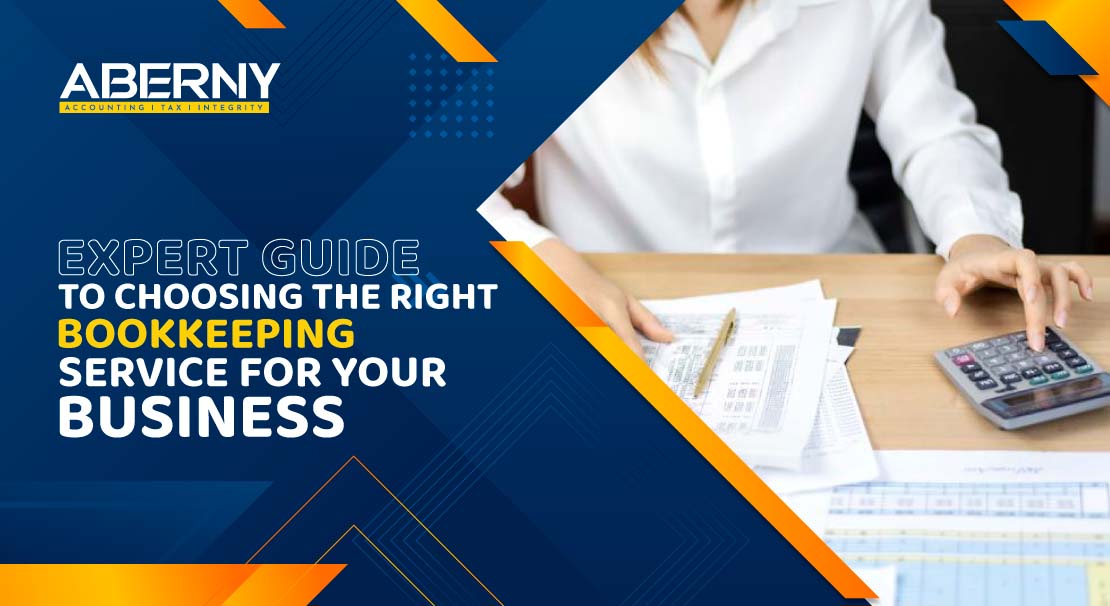



Managing the financial aspects of a business is no small feat. It requires meticulous attention to detail, accurate record-keeping, and a deep understanding of financial regulations. As a business owner, your time is valuable, and you need reliable bookkeeping services that can handle this crucial task with expertise and precision. There is no doubt that bookkeeping services plays an indispensable role in maintaining the financial health and success of your company.
But before opting for bookkeeping services for business you need to consider some essential factors that can align your business goals. Yes! You read that right… Whether you are a small startup, a growing mid-sized company, or an established enterprise, making an informed decision about your bookkeeping service can have a significant impact on your financial management and overall business operations.
In this comprehensive guide, we will walk you through the essential considerations and provide invaluable insights to help you choose the right bookkeeping service for your business. Join us as we delve into the world of bookkeeping service, empowering you to find a trusted partner who will not only keep your financial records in order but also contribute to the overall success and growth of your business.

Effective bookkeeping is the foundation of a well-managed business. However, finding the right bookkeeping services provider can be a daunting task. To help you navigate this process, we have prepared a step-by-step guide that will empower you to make an informed decision.
Let's dive in:
Start by evaluating your specific bookkeeping requirements. Consider factors such as the size of your business, the complexity of your financial transactions, and any industry-specific regulations that may apply. Understanding your needs will guide you in selecting a bookkeeping service provider equipped to handle your business's financial intricacies.
Look for bookkeeping services with a proven track record of experience. A qualified provider will possess industry-specific knowledge, understand the nuances of financial reporting, and have a keen eye for detail. Assess their expertise by reviewing their certifications, client testimonials, and case studies.
Inquire about the bookkeeping service's technology infrastructure and tools. Opt for providers who leverage modern bookkeeping software and technologies that streamline processes and enhance accuracy. This may include cloud-based platforms for secure data storage, automated reporting, and integration with other business systems.
Make sure that the bookkeeping services can accommodate your business's growth. Flexibility and scalability are crucial, as your financial needs may evolve over time. Discuss their ability to handle increased transaction volumes, additional business entities, or expanding operations, ensuring they can grow alongside your business.
Safeguarding your financial data is paramount. Inquire about the bookkeeping service's security protocols, encryption measures, and data backup practices. Verify that they comply with industry standards and regulations to maintain the confidentiality and integrity of your sensitive information.
It is really essential to check the confidentially before choosing any bookkeeping services for business.
Establish clear lines of communication with your bookkeeping service provider. Effective and timely communication is essential for addressing inquiries, resolving issues, and staying informed about your financial status. Ensure they are accessible, responsive, and capable of providing regular financial reports.
Understand the bookkeeping service's pricing structure and evaluate it in relation to the value they provide. Consider factors such as the scope of services, the level of expertise offered, and any additional benefits or insights they can bring to your business. Strive for a balance between affordability and quality.
Gather recommendations from trusted sources or industry peers who have utilized bookkeeping services. Additionally, conduct interviews or consultations with potential providers to discuss your needs, ask pertinent questions, and gauge their suitability for your business.
Assess whether the bookkeeping service provider has experience and expertise in your specific industry. Different industries may have unique accounting practices, regulations, and reporting requirements. A bookkeeper familiar with your industry can provide tailored solutions and insights that align with your sector's nuances.
Request references from the bookkeeping service provider and reach out to their current or past clients. Inquire about their experience working with the provider, their level of satisfaction, and any notable strengths or areas for improvement. Feedback from other businesses can provide valuable insights into the provider's reliability and professionalism.
Look for a bookkeeping service provider that goes beyond basic data entry and financial recordkeeping. Seek a partner who can offer proactive financial guidance, such as identifying cost-saving opportunities, recommending process improvements, or providing strategic insights based on your financial data. Their ability to contribute to your business's growth and profitability sets them apart.
Ensure that the bookkeeping services provider offers a clear and comprehensive service level agreement. This document outlines the scope of services, deliverables, timelines, and any service guarantees. Having a well-defined SLA helps manage expectations, establishes accountability, and ensures that the provider meets your business's specific requirements.
Inquire about the bookkeeping service provider's disaster recovery and business continuity plans. They should have robust measures in place to protect your financial data in the event of unforeseen circumstances such as natural disasters, system failures, or data breaches. A reliable backup strategy and contingency plan are essential to safeguard your critical financial information.
Discuss the bookkeeping service provider's approach to data transparency and access. You should have full visibility into your financial records and be able to access them whenever needed. Ensure that the provider maintains transparent processes, provides regular reports, and grants you appropriate access to your financial data.
Selecting the right bookkeeping services for your business is a decision that requires careful consideration. By following the steps outlined in this guide, you can make an informed choice that aligns with your business needs and goals.
By finding a reliable and competent bookkeeping services for business, you can offload the burden of financial management and gain peace of mind, knowing that your records are accurate, compliant, and up to date. This partnership will not only ensure the smooth functioning of your business's financial processes but also provide valuable insights to drive growth and success.
Take the time to conduct thorough research, gather recommendations, and interview potential providers. It is through this diligence that you will identify the perfect bookkeeping service partner who will contribute to your business's financial clarity, efficiency, and long-term prosperity.
However, if you think you cannot do this own get in touch with Abnery – their team will help you embrace the power of effective bookkeeping service while helping you unlock the potential for financial success.